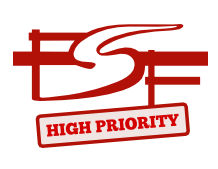| FSF Sets A New Software Agenda |
| Written by Mike James |
| Tuesday, 24 January 2017 |
|
The Free Software Foundation has just issued its list of high priority projects and this indicates the critical issues in the open source ecosystem. What does the FSF think we are lacking? And what poses the most dangers?
At its most extreme the FSF can set the bar so high - don't use any software that isn't free in the sense that you can look at and modify the code - that is seems fanatical. Not everyone shares the view that proprietary software is evil. It all depends on how critical that software is, how endangered that software is, and how evil the company using the software is. The high priority list is interesting because it highlights the fact that what is of most concern is software being the opposite of free. At the top of the list is the need for a free phone OS. You might think that Android fits that bill, but it isn't open enough for the FSF. Replicant is an attempt at a free version of Android, but it isn't a particularly convincing attempt. At the moment it supports 12 different devices - not a lot really - and this is because hardware standardisation on Android isn't good. The FSF sponsors Replicant.
The next two topics are huge and it is difficult to see the FSF, or anyone else, making much impact. The whole issue of hosting and servers and social networks like Facebook is probably something that cannot be rebuilt by the open source community. The same is true of the next priority - drivers, firmware and open hardware. There are simply too many proprietary secrets in hardware and drivers. Even systems like the Raspberry Pi that seem to be open hardware aren't because of the way Broadcom and ARM keep their trade secrets to themselves and don't tell you how the hardware works and provide drivers as binary blobs. While there are projects trying to create open versions of various important drivers, the overall impact is likely to be negligible. The final two projects are interesting. The FSF takes aim at Skype and FaceTime and all voice and chat programs. The problem here is that not having access to the code means that you cannot verify who is listening in. Here the FSF has a better chance of success because there could well be a shift if anyone manages to deliver WebRTC to the end users. The final project is a tough one. Suddenly the world is full of intelligent bots offering to do things for us. Google Now, Cortana, Siri and the killer app in the form of Amazon's Alexa. The FSF is concerned that despite their convenience they come with unacceptable trade-offs. Put simply they leak the user's data to the cloud-based machines that do the processing. Again the idea of a replacement based on fully open source technologies isn't likely to succeed. At the current time these applications need lots of servers to back them up and provide their intelligence. This is not something that an open source project is likely to be able to support. There is a more open intelligent bot in the form of Mycroft, but even it needs the backing of servers to do its job. As well as the projects there are also some worthy aims - to encourage contribution by people underrepresented in the community, improve accessibility, internationalize free software, improve security, help GNU/Linux distribution be committed to freedom and finally encourage the adoption of free software by governments. All perfectly reasonable and the FSF might get somewhere with any of these aims with sufficient determination. The big problem is that the actual high priority projects on the list really don't seem to have any great chance of success. There are no future Linux projects in the list that will change the world in the same way. The main reason that Linux could change things was because it could assume a standardized hardware, i.e the PC which was designed to run a single version of Windows. It was an easy target. In today's hardware world things are much more varied with each phone manufacturer making modifications and tweaks to the platform. The advent of the cloud and its ability to bring huge processing power to solve problems that could not be solved on the local processor also makes the FSF unable to compete without a huge increase in funding. And going up against established social networks and hosting services is almost certainly futile. If Google could not unseat Facebook, and if Microsoft struggles to make a dent in Amazons AWS ,what hope has the FSF got? Most of these high priority projects are doomed to vanish without trace. It does however raise the question of what open source should be concentrating on? What exactly would be on a sane high priority list?
More InformationHigh Priority Free Software Projects Related ArticlesFSF Fundraising for Free Android OS Mycroft On Raspberry Pi An Open Source Alexa Social Media Trends - Google+ Is Number Two Mozilla Funding - Crisis Averted For Now FSF - Free JavaScript Campaign - Too Far?
To be informed about new articles on I Programmer, sign up for our weekly newsletter, subscribe to the RSS feed and follow us on Twitter, Facebook or Linkedin.
Comments
or email your comment to: comments@i-programmer.info |
| Last Updated ( Tuesday, 24 January 2017 ) |



